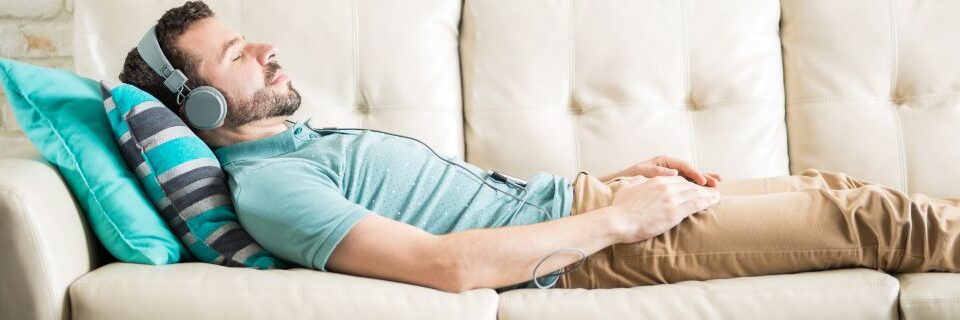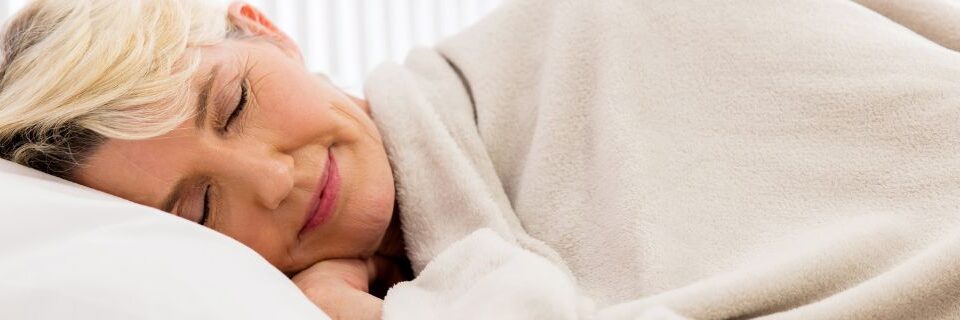
Natural Sleep Aids: Are They Safe and Effective?

Sleep Therapy: Everything You Need to Know
Table of Contents
Sleep is a natural biological function, but for many of us, it can also be elusive. If you are having difficulty falling asleep or staying asleep or if you find that you feel unrefreshed when you awaken, the problem might be easier to manage than you imagined. There are several reasons you might have trouble sleeping and not be getting the sleep you need. Read on to learn about eight common but surprising reasons that sleep is so hard to achieve.
1. Caffeine and other substances
Do you start your day with a cup of hot coffee or tea? That same jolt of caffeine that wakes you in the morning could be keeping you from sleeping at night. Caffeine is a stimulant that can trigger hyperarousal, especially when consumed too close to bedtime. Although caffeine is a common sleep disruptor, it is not the only substance that can keep you awake at night. Numerous legal and illegal substances can affect your rest, including:
- Diet pills
- Stimulants to treat ADHD
- Some antidepressants
- Beta-blockers
- Steroids
- Some antihistamines
- Amphetamines and methamphetamines
- Nicotine
Alcohol can also make it hard to get quality rest. Although it is common to use alcohol to fall asleep, that nightly glass of wine might be doing more harm than good. Alcohol can interfere with your natural sleep cycles and keep you in a lighter stage of sleep. It has also been associated with frequent nighttime waking.
For the best sleep, restrict your consumption of caffeine, alcohol, and other sleep-disrupting substances for at least several hours before you go to bed. If you are on sleep-disrupting medications, talk to your doctor about the possibility of making adjustments to improve your sleep.
2. Diet
Is what you eat keeping you awake at night? Heavy meals, fatty foods, and midnight snacks can disrupt your sleep cycles. A few studies have shown that some foods can promote sleep, including dairy products, fish, and fruits and vegetables. While you do not necessarily need to completely revamp your diet to improve your sleep, skipping the large, fatty meals before bedtime might just be what you need to enjoy higher quality sleep.
3. Anxiety
If you struggle with anxiety or depression, you likely already know that they can make it hard to focus and concentrate. However, they can also interrupt your sleep patterns and make it difficult or impossible to reach REM sleep. Worse, anxiety and depression can also be aggravated or worsened by a lack of sleep. You do not necessarily need to be diagnosed with anxiety or worry to disrupt your sleep patterns, either. Day-to-day stress can lead to hormonal fluctuations that keep you awake at night.
Healthy stress management techniques can help you get the rest you need. If you have been diagnosed with depression or anxiety, talk to your doctor about appropriate treatments, which could improve not only your symptoms but also your sleep deprivation.
4. Activity
Whether you are sedentary or active, exercise can lead to trouble sleeping. A sedentary lifestyle could be keeping you tossing and turning at night. Exercise is correlated with better sleep, but it can also disrupt your sleep if you work out too late in the day. To get a better night’s sleep, get some physical activity every day, and try to time your workouts for at least a couple of hours before bedtime.
5. Comfort
Is your room too hot or too cold? Is your mattress too firm or too soft? An uncomfortable sleep environment could affect not just how much sleep you get but the quality of your sleep. Experts recommend keeping your sleep temperature just above 18° celsius or about 65° Fahrenheit for the best result. Choose a mattress that is comfortable for you and bedding that is warm but not too warm.

6. Distractions
As anyone who has spent any time scrolling mindlessly through their phone knows, our devices can be major distractions. Unfortunately, they can also interrupt your sleep routine. Not only can they keep you engrossed in social media or games long after you should be asleep, but they also emit circadian rhythm-disrupting light. While the research about the potential for the blue light to interfere with sleep is ongoing, researchers believe that blue light can disrupt your body’s production of melatonin and may have an effect on REM sleep as well.
7. Habits
Lifestyle factors can play a big role in the quality of your rest. For example, it can be easy to get in the habit of napping during the day. You might be even more tempted to nap during the day if you are struggling to get sleep at night. However, too much napping can interfere with your ability to fall asleep at night. For the best results, limit your daytime napping to 20 minutes or less.
8. Sleep problems
Sleep disorders are perhaps one of the best-known causes of poor sleep. Insomnia and sleep apnea are among the most common disorders of sleep with symptoms ranging from loud snoring to mood swings and headaches. If you think you have a sleep problem, your doctor or sleep specialist may recommend further testing. Treating your disorder rather than the symptoms can help you awaken refreshed and ready to take on the day.
If you are ready to get a good night’s sleep, addressing the things that are keeping you awake can be a great first step. Other options are also available and can make a big difference in how you sleep and how much you sleep. Contact us today to learn more about your options.
UpNow Health only uses high-quality sources, including peer-reviewed articles, to support the facts within our articles. All our articles are reviewed by experts to ensure that our content is accurate, helpful, and trustworthy.
1. A, N., Jl, D., & G, D. (1992, May 1). Caffeine and the Central Nervous System: Mechanisms of Action, Biochemical, Metabolic and Psychostimulant Effects. Brain Research. Brain Research Reviews. https://pubmed.ncbi.nlm.nih.gov/1356551/
2. Best Temperature to Sleep: Research and Sleep Tips. (2019, December 13). Healthline. https://www.healthline.com/health/sleep/best-temperature-to-sleep
3. Bilodeau, K. (2021, June 1). Is your daily nap doing more harm than good? Harvard Health. https://www.health.harvard.edu/staying-healthy/is-your-daily-nap-doing-more-harm-than-good
4. Drug and Alcohol Related Sleep Disorders. (n.d.). WebMD. Retrieved December 12, 2021, from https://www.webmd.com/sleep-disorders/drug-alcohol-related
5. Kline, C. E. (2014). The Bidirectional Relationship Between Exercise and Sleep. American Journal of Lifestyle Medicine, 8(6), 375–379. https://doi.org/10.1177/1559827614544437
6. Palagini, L., Baglioni, C., Ciapparelli, A., Gemignani, A., & Riemann, D. (2013). REM sleep dysregulation in depression: State of the art. Sleep Medicine Reviews, 17(5), 377–390. https://doi.org/10.1016/j.smrv.2012.11.001
7. St-Onge, M.-P., Mikic, A., & Pietrolungo, C. E. (2016). Effects of Diet on Sleep Quality. Advances in Nutrition, 7(5), 938–949. https://doi.org/10.3945/an.116.012336
8. Tähkämö, L., Partonen, T., & Pesonen, A.-K. (2019). Systematic review of light exposure impact on human circadian rhythm. Chronobiology International, 36(2), 151–170. https://doi.org/10.1080/07420528.2018.1527773












